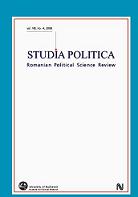Memoria baricadelor. Anul 1848 în context comparativ
The Memory of Barricades. 1848 in A Comparative Context
Author(s): Mihai ChiperSubject(s): History
Published by: Editura Universităţii din Bucureşti
Keywords: 1848 revolution; commemorations; national memory; political rituals; Europe.
Summary/Abstract: The paper offers a comparative perspective at a European level of the memories of the 1848 revolutions, unveiling the discontinuities and fractures of the national traditions. Some nations or states although deeply damaged by these events are more likely to forget the 1848: France, Austria, Poland; other countries managed to transform it in a point of reference for their political and even social modernity: Hungary, Italy and Germany. The different types of practice and commemoration of the memory of the revolution were strongly linked to the political culture each managed to develop. A common factor for such countries that underwent revolutionary events is that of socially remembrance influenced by political interest that results in different forms of commemorative practices taking place. Political figures tried to mobilize the memories of 1848, commemorating heroes, using funeral rituals, unveiling statues, attending processions and political debates that started to crystallize around these anniversaries. With respect to societies, the group didn’t share the same version of the past; the reason was that their political, social and national goals proved to be contradictory. Some political currents, especially the liberals were celebrating the parliamentary fight in 1848, others emphasized the fight against the foreign influence (Central and Eastern Europe), whereas socialists built up upon the connotation of the dead on barricades.
Journal: Studia Politica. Romanian Political Science Review
- Issue Year: 8/2008
- Issue No: 4
- Page Range: 793-833
- Page Count: 41
- Language: Romanian

